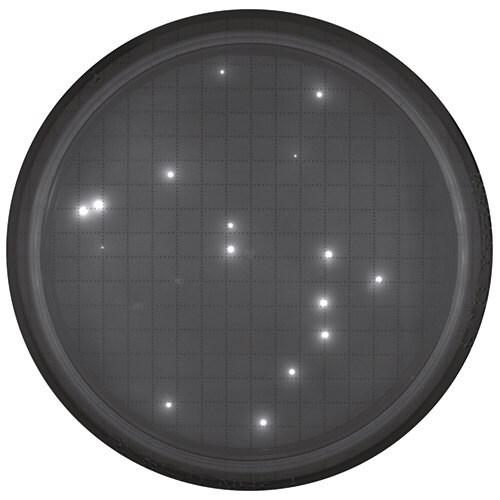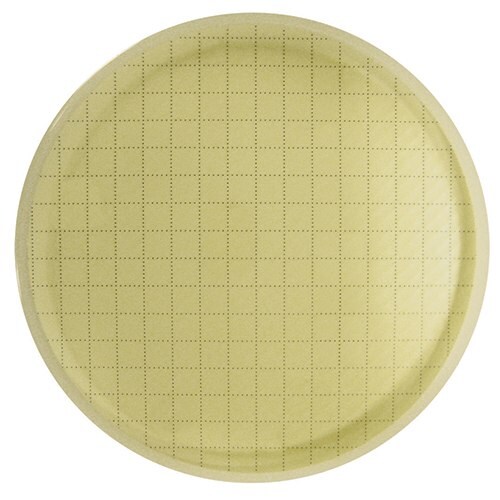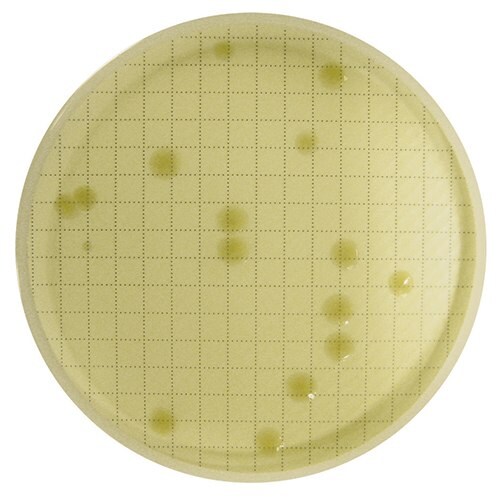Fluorescence-based Rapid Microbial Detection Technology Using Milliflex® Quantum System
Fluorescent-based detection methods allow for faster microbial quality control throughout the manufacturing process. The ability to obtain microbial tests earlier enables one to keep pace with increasing demand and allows corrective actions in case of product contamination. The Milliflex® Quantum system is an easy-to-use, non-destructive, fluorescent staining-based system ensuring consistent and accurate microbiological results while reducing overall time to result.
Fluorescent Staining For Rapid Microbial Detection
The Milliflex® Quantum system is based on membrane filtration and fluorescent staining for rapid detection of microorganisms. After filtration and incubation, the reagent is applied to the membrane to stain any viable and culturable microorganisms with a fluorescent marker. The reaction requires active microbial metabolism for enzymatic cleavage of a non-fluorescent substrate. Once cleaved inside the cell, the substrate liberates free fluorochrome into the microorganism cytoplasm (Figure 1). As fluorochrome accumulates inside the cells, the signal is naturally amplified. The cells are then exposed to the excitation wavelength of the fluorescent dye so that they can be visually counted.

Figure 1.Principle of Fluorescent Staining.
Milliflex® Quantum Rapid Detection System
The Milliflex® Quantum system is designed for the rapid detection and enumeration of microorganisms over a broad range of filterable samples. The system detects microbial colonies even before they are visible to the naked eye. Milliflex® Quantum system combines widely used membrane filtration with proven enzymatic fluorescent staining of viable microorganisms for early detection. This significantly reduces the time to result compared to the traditional methods. The fluorescence-based quantitative detection method is fast, reliable, and robust, over the whole range of assays following the US and Ph. Eur. guidelines.
Milliflex® Quantum uses a non-destructive procedure, making it possible to identify any viable microorganisms subsequently using your current identification methodology.

- Detection times for most microorganisms are between 8 – 48 hours
- Compatible with any ID technology
- Easy to use with a simple workflow, requiring minimal training
- Results comparable to a compendial method, facilitating Milliflex® Quantum validation
- Compact hardware with a small footprint
- Economical and robust system
Milliflex® Quantum System Applications
Milliflex® Quantum system uses industry-standard membrane filtration techniques to detect viable and culturable microorganisms down to 1 CFU per sample. This easy-to-use and simple system is compatible with a wide range of filterable samples:
- Raw materials such as media, buffers, pharmaceutical ingredients, and water
- In-process samples (bioburden before sterilization) including CIP/SIP samples, media for fermentation, buffers for manufacturing, and intermediate process samples
- Final product
- Environmental samples
Milliflex® Quantum Testing Workflow
The Milliflex® Quantum system employs 3 easy steps for rapid bioburden testing using two proven technologies: membrane filtration and fluorescent staining. The system consists of a reader, camera, and fluorescent reagents used in combination with our Milliflex Oasis® system.
1. Sample Preparation
The Milliflex® Quantum method utilizes a device for sample preparation, which ensures consistent and reliable results. Filter the desired sample volume through the ready-to-use Milliflex Oasis® filtration device. Place the membrane filter base onto a prefilled agar cassette and incubate.
2. Fluorescent Staining
Transfer the membrane filter to a pad soaked with the fluorescent reagent and incubate for 30 minutes.
3. Counting CFUs
Count fluorescent colonies through the window of the Milliflex® Quantum reader or use the camera to view the colonies on your computer screen.

Visualize plate after staining. View of the membrane in the reader.

CFUs are not visible outside of the reader.

After reincubation, CFUs are visible to the eye.
For reference, the tested sample of in-process, non-sterile water using the Milliflex® Quantum system is shown here. After detection, the membrane was reincubated for full growth and Identification.
4. Reincubation
Reincubate for identification of the microorganisms. Place the membrane filter on a prefilled agar media cassette for reincubation. Collect and isolate the microorganisms and identify them using any existing ID methodology.
Milliflex® Quantum Spot Counter Software
The Milliflex® Quantum camera combined with the Milliflex® Quantum Spot Counter software makes the sample reading more convenient and allows you to track records for optimized microbiology QC labs. Download the software here.

Dr. Marcel Goverde
Managing Director, MGP Consulting, Switzerland
“Milliflex® Quantum was successfully validated as a rapid alternative method to the traditional bioburden testing”

Dr. Tim Sandle
Ph.D., Head of Microbiology, Risk Management, and Sterility Assurance at Bio Products Laboratory Limited.
Read the study by Tim Sandle
Watch the on-demand webinar
Milliflex® Quantum Services
The Milliflex® Quantum platform is simple and economical, enabling the user to focus resources on the validation method. We also offer a comprehensive range of services to support the implementation, including IQ, OQ, and PQ guidelines. Our highly experienced team of experts is available to assist you. They can help you ensure that all test criteria lead to a completely qualified and accurate test method, including hardware, expendables, and product testing method (S.O.P.).
Our validation services include:
- Validation strategy & PQ consultancy
- On-site data analysis support and report generation
- On-site support for the implementation of qualification tests
- Operator technical training
- Development of testing methods
Related Products
Milliflex® Quantum System
Milliflex Oasis® Filtration Pump
Milliflex® Quantum Hardware and Accessories
Milliflex® Quantum Consumable Kits
Milliflex® Quantum Services
To continue reading please sign in or create an account.
Don't Have An Account?